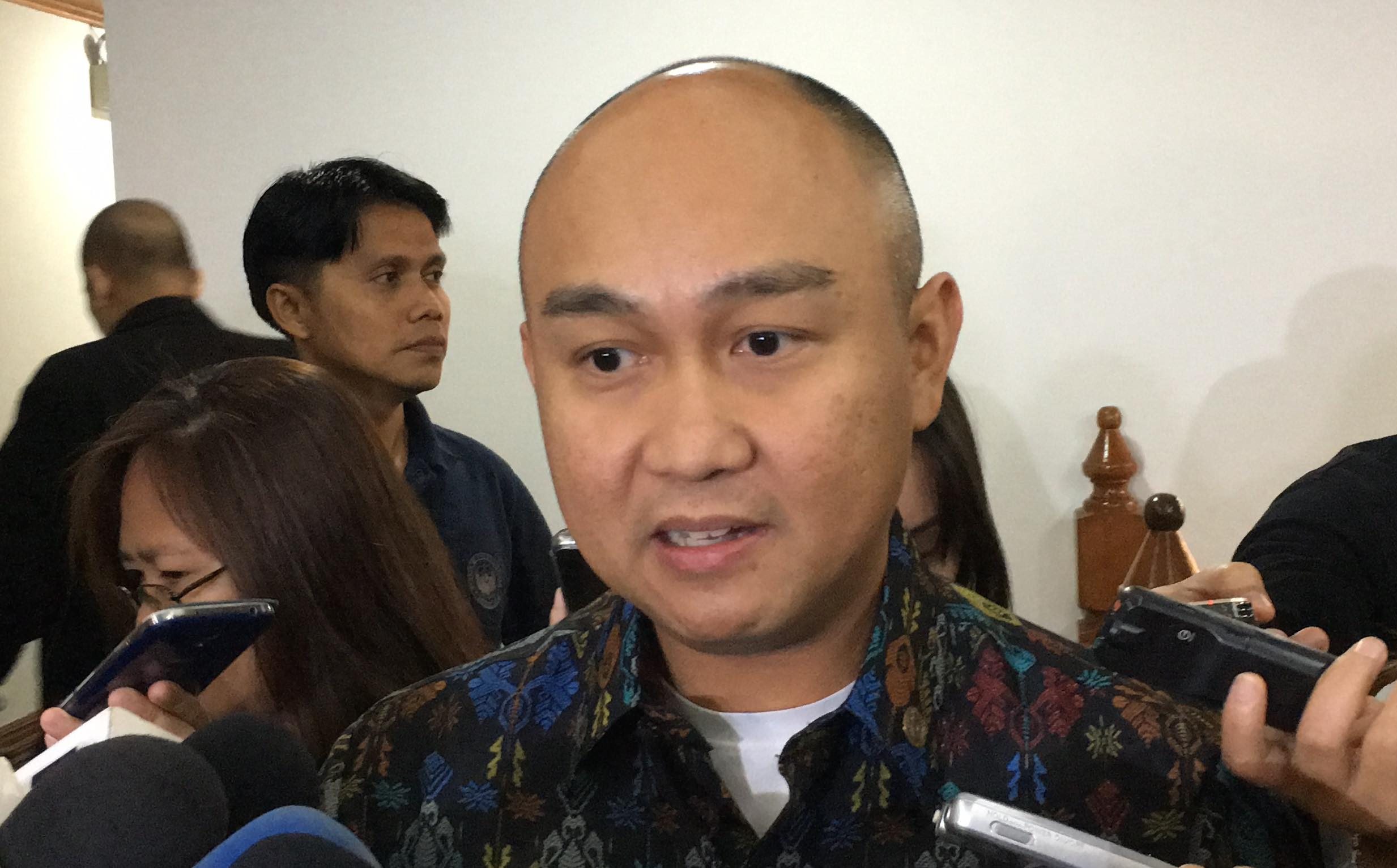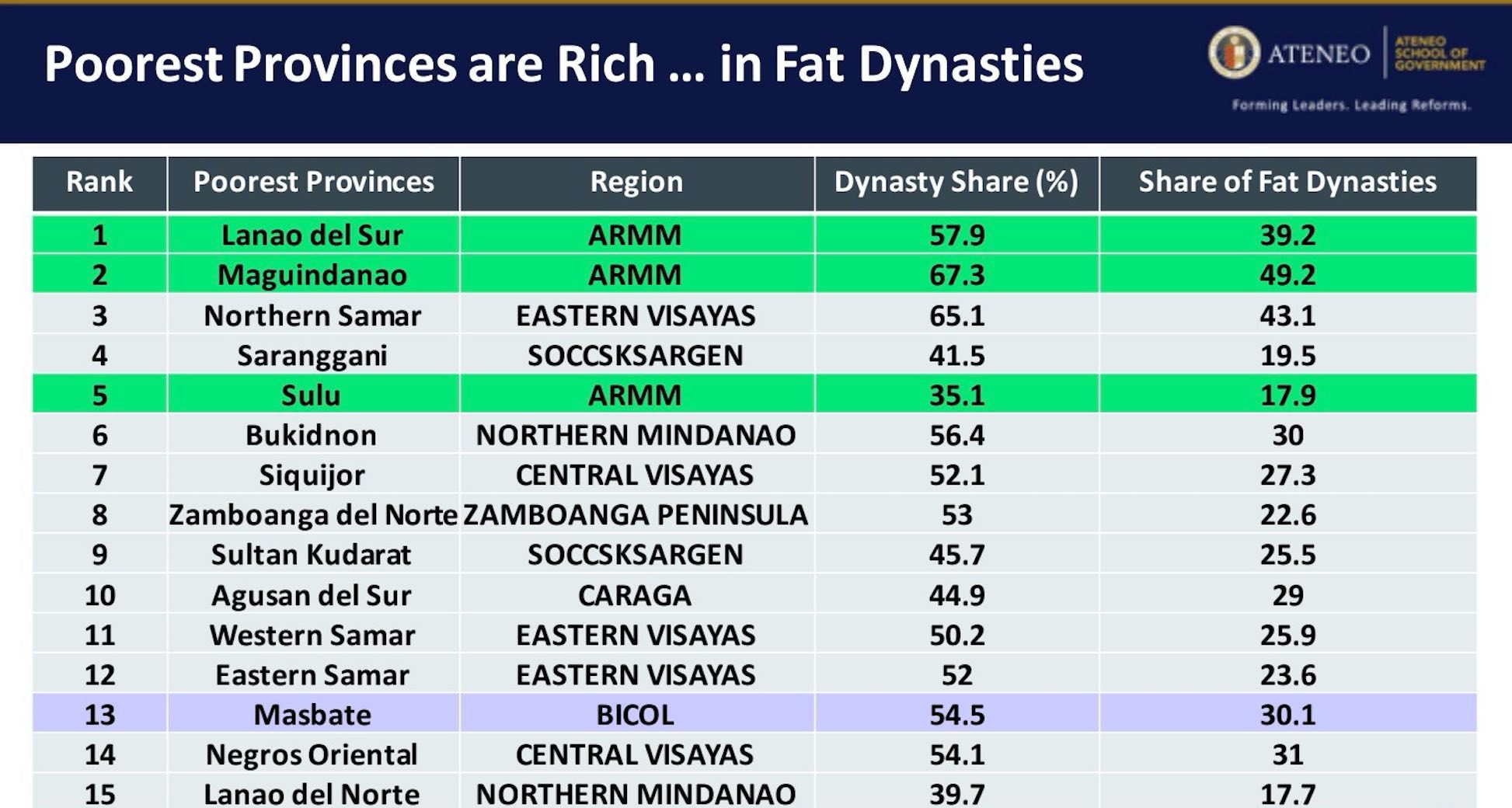SUMMARY
This is AI generated summarization, which may have errors. For context, always refer to the full article.

MANILA, Philippines – The proposed Bangsamoro state is bound to fail, like the Autonomous Region in Muslim Mindanao (ARMM) that it seeks to replace, if political dynasties would not be banned, a governance specialist told senators on Thursday, February 15.
Ateneo School of Government dean Ronald Mendoza cited the necessity of an anti-dynasty provision in the proposed Bangsamoro Basic Law (BBL) when Senate Minority Leader Franklin Drilon asked for the correlation between dynasties and poverty in the provinces. (READ: Experts suggest compromise for Congress: Regulate, not ban, dynasties)
In his presentation, Mendoza said 3 of the 5 poorest provinces in the country come from ARMM, and they have a high share of “fat dynasties” or political families whose members are in several elective positions all at the same time.
These are Lanao del Sur, Maguindanao, and Sulu.

“I think there are many good leaders we can choose from…. The original project (ARMM) failed because of the weakness of political parties, weakness of governance. We will have another fiasco if we do not give them (other leaders) a fighting chance,” Mendoza said.
Drilon, in an earlier hearing, pushed for the inclusion of a provision banning dynasties, but was opposed by members of the Bangsamoro Transition Commission (BTC), some of whom are from political families in the ARMM.
Mendoza said there is a strong need for an anti-dynasty provision in the BBL to strengthen political parties and push for good governance.
He also addressed the comment made in the last hearing by Senator Juan Miguel Zubiri, chair of the BBL subcommittee, that there might be no one left to lead the new region if an anti-dynasty policy is implemented.
“In one way, this is true because they many of them in power are relatives. But my response would be – and that’s the point. Because we cannot expect ARMM to develop good governance when its starting point is already captured. We must give it a fighting chance to grow alternative leaders and to strengthen political parties,” Mendoza said.
Mendoza said the opposition to a dynasty ban does not come from the public but from politicians that would be directly affected.
“The people there can no longer challenge leaders because they have captured everything. Your education, healthcare, job – they’re leaving everything up to traditional politics, political clans. So the people would not speak out and say they are against fat dynasty. We cannot expect them to fight. We must fight for them,” he said in mix of English and Filipino.
In a previous BBL hearing, members of the BTC opposed the inclusion of the anti-dynasty provision, saying it is another “experiment” in the region. They said it is a “clear violation of equal protection clause” or the right of every person to vote and be voted.
They questioned why it would only be implemented in the Bangsamoro when it is mandated in the 1987 Constitution.
It would not be the first time that such a provision would be introduced in a specific law, however. Republic Act 10742, or the law creating the Sangguniang Kabataan, prohibits relatives of government officials up to the second degree of consanguinity or affinity from running for the youth councils.
Mendoza countered the view of BTC members. The very absence of an anti-dynasty law is what prevents other people, especially young ones, from holding office, he said.
He said the people of the Bangsamoro now have a chance to correct this error.
“That provision is really important. I am envious at our Muslim and Moro fellowmen because they now have the chance to fix the way they elect leaders, which was taken away from us because Congress did not enact the Constitutional requirement to define dynasties,” he said. – Rappler.com
Add a comment
How does this make you feel?
There are no comments yet. Add your comment to start the conversation.